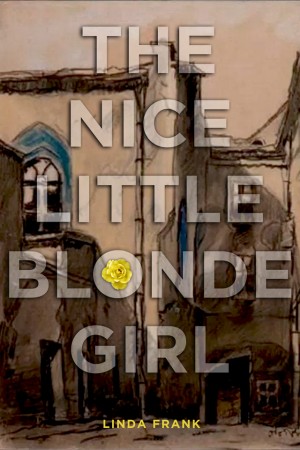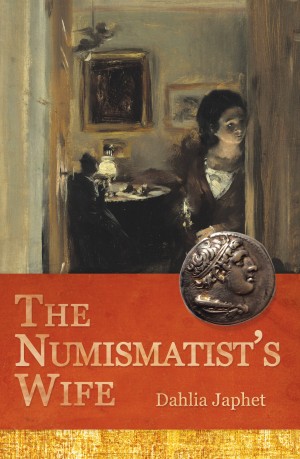January 1, 2013
A novel in two parts, The Paris Photo first relates the experiences of Ben Gordon, a Jewish American soldier who arrives in 1944 Paris shortly after the Liberation. He is also on a mission to find a Jewish family. He hears that the father and grandfather have disappeared, and bit by bit, learns with the family of the tragedy that has overtaken the Paris Jewish community. In the second part, six decades later, Ben has just died, and his adult daughter Judith, in clearing out her parents’ apartment, finds a box of photos that includes one of Ben with a French family.
While Judith knew her father had been in Paris, she had known nothing about them. Her researcher’s curiousity aroused, Judith locates the child in the picture. She finds a retired journalist who has cut himself off from Judaism. Gradually, he reveals the trauma from which he has still not recovered, and she discovers her growing anger with France for betraying its Jewish population. The experience changes her orientation, as she realizes the significance of Jewish identity.
Discussion Questions
Courtesy of Jane S. Gabin
- The novel is set in two distinct time periods. What similarities or differences exist between the two, in terms of local and global sociocultural and/or political situations? What parallels can be seen between the characters in the two periods?
- Consider the experiences of the Holocaust from the perspective of Simone Daval. How might this be different from the experience of others like her (i.e.married Jewish women, or Jewish mothers) in Paris? In the rest of France? In Germany or Austria?
- What can be said about Guy’s willingness or unwillingness to discuss aspects of his life from the time of the war? What might explain this behavior, or not explain it? What effect does it have on the separateness or cohesiveness of the two parts of the novel?
- Consider the relationship between Guy and Sergeant Ben. How does Guy discuss this relationship with Judith? Do you think the emotional response Guy has to any mention of Judith’s father makes sense, given their relationship?
- What is the significance of the titular Paris photo? what part does this photo play in the plot? In the development of characters? To whom is the photo most significant?
- When Ben meets the Davals, WWII is still raging in parts of Europe. As an American soldier, Ben actually knows little about the details of the German “Final Solution” or the experience of European Jews during the war. How does he respond to hearing about Simone’s and Mira’s experiences? What would it have been like for Simone to tell her story to this stranger?
- The first time Ben hears about Auschwitz is on a radio news program, and he’s not sure how much to believe. Compare this with Judith’s extensive library research on the Holocaust more than 60 years later. What similarity and differences are there in the content and/or the cultural context? What emotional similarities or differences might there be in their responses?
- What is the significance of the novel’s epigraph? How does this theme play out in the experiences of the characters?
- Ben feels guilty for not having been on the beaches of Normandy for the invasion, instead arriving in France with his postal unit shortly afterwards. How does he handle being rejected for combat, and how might things have been different if this had not happened?
- The novel includes many factual, researched retails of the Holocaust, the Occupation of France, the Liberation of Paris, and more. How do these details, spread throughout Parts 1 and 2, compare with your own understanding of these events?
- Consider the relationship between Judith and Guy. How ought it be described or categorized, if at all? What tensions exist, and what comforts? The novel describes a wealth of detailed interactions between these two. How does Judith feel about their relationship, and what does Guy feel? Are they similar or different?
- What parallels does Judith notice between the past and the present as she explores the modern city of Paris? What effect does this have on her? How might her experience as a tourist in Paris be different from other tourists’ experiences, and what can be made of these differences?
- Ben experiences considerable emotional turmoil regarding his feelings for Simone in Paris and his responsibility to Sylvia, back home in New York. How handle this tension, and why might he act the way he does? What factors are involved? How does this influence the characters in the present day? Does what he decides to do (or not do) affect your opinion of him?
- The topic of anti-semitism in the US is mentioned in a few different places. What does it look like in the 1930s and 1940s, and how is that similar or different from today? Consider the anti-semitic incidents Ben experiences in New York, and later in Frankfurt, from other Americans. What effect does this have on the characters and on the reader?
- All the Jewish characters in the novel describe themselves as “not very religious.” However, their Jewishness radically influences their life experiences. How does this apparent contradiction work in the novel, and within each of the characters?
- As father and daughter, Ben and Judith have a special relationship which perhaps Judith does not even recognize. In what ways does Judith navigate the relationship she has with her now-deceased parents? How do Judith’s questions about her parents’ marriage influence her conversations with her brother Michael?
- What is the greatest impetus for Judith’s search for knowledge (about her father, about Paris, about the French family)? Why is there such an emotional draw that Paris has on her after she discovers her father’s additional pictures? Compare the initial catalyst of Judith’s interest in her father’s past with her desire to return to Paris at the end of the novel.
- How does the figure of the flaneur or flaneuse use play out in Judith and Ben’s explorations of Paris? How does this experience affect their understanding of their surroundings? Are their experiences unique, and if so, how? How does the novel’s depiction of the flaneur correspond to your own experiences of traveling in a new city?
- In his 2009 book, Holocaust Trauma: Psychological Effects and Treatment, Natan Kellerman describes the Holocaust as a “major collective trauma”that “continues to leave its indelible mark on us.” Many other scholars have also described the Holocaust as perhaps the prime example of the psychological experience of collective or inherited trauma. Is it accurate to say that we see this in The Paris Photo?
- Several different languages are used in this novel, both in dialogue and narrative description. What is their significance, in terms of creating the story’s tone and the emotions of the characters? How does the language we use to talk about WWII influence our understanding of it? Words like “Occupation”and “Liberation” have taken on a significance far beyond their standard meanings. As another example, Judith notes the recurring phrase “mort pour la France,” which has also taken on a specific meaning. Discuss the function of language in the book.




